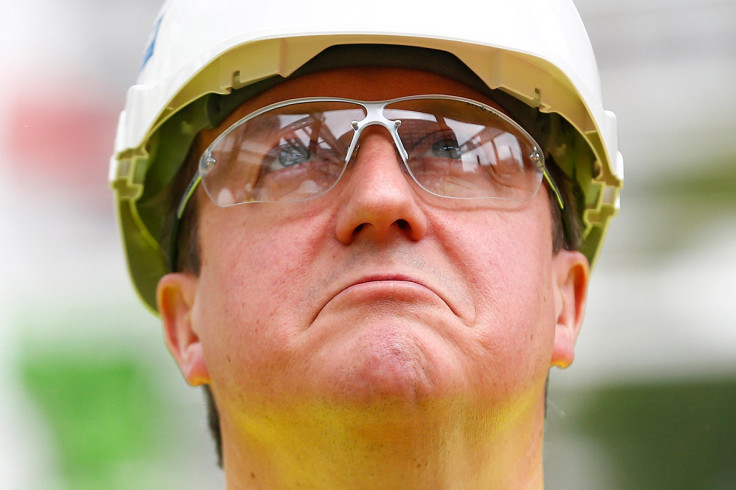Reshuffle Backlash as Cameron Faces Attacks Over Europe, Taxes and Sackings

It is a political rule that the bigger the reshuffle the bigger the inevitable backlash, and David Cameron is now chalking up the areas where he is facing problems after his extraordinary bout of blood letting.
There are new rifts with the Liberal Democrats, with Nick Clegg claiming the "headbangers" had won, rows over knighthoods for the sacked, Peers' protests over the constitutional "snub" to the Lords, and rumblings of anger over good people humiliated.
Most dangerous of all is the creation of a powerful bunch of those humiliated former ministers who have nothing left to lose if they revolt.
The fact this group may be led by ex-defence secretary Liam Fox, who threw Cameron's offer of a junior ministerial job back in his face, suggest real problems ahead for the prime minister, certainly if he fails to win another election outright when a leadership challenge would be inevitable.
The election was undoubtedly the driving force behind the reshuffle, with some manifesto commitments already taking shape and leading to trouble with the coalition partners.
The appointment of a new attorney general has led to exactly the split with the Lib Dems everyone had predicted by allowing Cameron to take a tough new line over the much-demonised European Court of Human Rights, which sacked minister Dominic Grieve had warned against.

Cameron will offer a manifesto pledge to give British judges the power to over-rule the Strasbourg court with a long-promised Bill of Rights. Clegg angrily declared he was "completely blindsided" by the move, adding: "The Conservatives, extraordinarily enough, want to line up with Vladimir Putin and other tyrants around the world by tearing up our long tradition of human rights."
At the same time, the Lib Dems executed a U turn over the much-criticised bedroom tax, claiming it wasn't working as intended and they wanted major reforms.
It appears they thought the minister in charge of the tax, Iain Duncan Smith, might have to be sacked in the reshuffle in order to allow the government to abandon or neuter the controversial policy but were again "blindsided" when it didn't happen so have been forced to change their own line on a policy that grassroots Lib Dems hate.
Rifts with the Lib Dems were always going to escalate as the election approached and Cameron can live with them.
But there is then the row over claims, not denied, that some of the sacked ministers, including Alan Duncan, Hugh Robertson and Oliver Heald, had been offered "gongs to go", branded an abuse of the system by critics. Again, Cameron can live with this even if it looks like low politics.
It is worse in the Lords where both Tory and Labour peers are furious at the breach of the constitutional rule that the leader of the house should be a full cabinet member.
The job went to Baroness Stowell but she lost full cabinet status and full salary as a result. In an embarrassing retreat Cameron later announced the £20,000 difference between her wage and her predecessors' would be topped up from Tory party coffers and she would attend cabinet.
Finally, and most dangerous, is the anger stacking up on the backbenches. Former Education Secretary Michael Gove may have agreed to a key new elections job but there has been widespread anger at the fact the was one of the most reforming ministers.
Critics claim Cameron moved him because he was following his adviser, Lynton Crosby's advice to "clear the barnacles off the boat" before the election
Gove's wife, columnist Sarah Vine re-tweeted a Daily Mail headline on a piece by Sir Max Hastings that said: "A shabby day's work which Cameron will live to regret."
And then there was the treatment of former leadership challenger Liam Fox. It was widely briefed that Cameron was ready to bring him back after the period of punishment following his resignation over his advisor and best man Adam Werritty.
But he was only offered a junior foreign office job which, friends said, dismayed him. He later claimed he wanted to remain free on the backbenches to argue his line over Europe and defence – seen as a clear warning of trouble ahead.
The sacking of right-winger Owen Paterson has also angered many backbenches and the prospect of Fox and Paterson forming a partnership as leaders of the right of the party should worry Cameron.
But as far as the prime minister is concerned, this was a cabinet for just 10 months, aimed entirely at closing down areas of controversy and appealing to voter's concerns.
If it leads to that 2015 victory it will be seen as a masterstroke. If it fails, it will be seen as the reshuffle that sealed his fate.
© Copyright IBTimes 2025. All rights reserved.






















